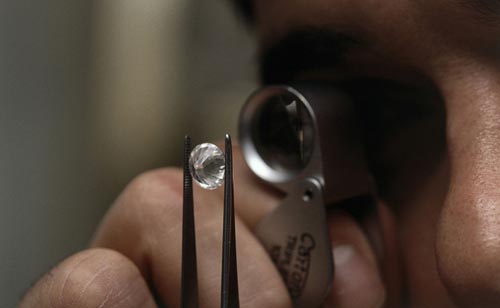
While their tweet linked to an article discussing the diamond industry’s increasing struggles in selling to socially conscious millennials,the question itself sparked outrage among Twitter users,and resulted in some hilarious if not heartbreaking response

Last month, The Economist did something monumentally stupid — they posed a question on Twitter that they really didn’t want the answer to.
Why aren’t millennials buying diamonds?
While their tweet linked to an article discussing the diamond industry’s increasing struggles in selling to socially conscious millennials, the question itself sparked outrage among Twitter users, and resulted in some hilarious — if not heartbreaking — responses.
But what sparked this conversation is a truly interesting turn of events. The diamond industry is in real trouble — but why?
Why people aren’t buying diamonds anymore
After the Lesedi La Rona diamond — touted as the “find of a lifetime” — failed to sell at a Sotheby’s auction in June, the Lucara Diamond Corp wanted to know why. With millennials being a popular whipping post, The Economist pointed a finger squarely at Gen Y’s concern over conflict diamonds. Millennials, in turn, responded with a rather harsh lesson in the truth of modern economics.
Here’s the thing, though — it’s not just millennials who are falling out of love with diamonds—it’s everyone. Ethical consumerism and money woes don’t belong to one generation alone. Yes, Generation Y is remarkably socially conscious, and yes, they’re broke as hell, but they’re not the only ones.
Ethically speaking, the diamond industry has a dark past. For years, conflict diamonds — diamonds originating from war zones — funded rebel fighters and insurgencies and perpetuated multiple human rights abuses. Forced laborers in diamond mines, many of them children, suffered violence and murder at the hands of mine owners.
In 2003, The Kimberley Process, a certification scheme established by a United Nations resolution, set out to right these wrongs. While they have had some success, there are major loopholes that still allow corruption to run rampant. While many diamond sellers tout their Kimberley Certification as proof of ethical diamonds, it’s nearly impossible to be 100% sure the diamonds they’re selling are conflict free — that is, unless they’re synthetic.
As for the money end of things, diamonds are a poor investment. They’re horrendously overpriced, and generally speaking, nothing more than a status symbol marketed as ‘the ultimate symbol of love’ — and believe me, when it comes to diamonds, it is all about the marketing. If you never knew the truth behind the diamond engagement ring, here it is in a nutshell:
In the late 19th century, British businessmen operating the South African mines realized the had to do something drastic in order to protect their investments and buoy diamond prices. They launched a cartel they dubbed De Beers Consolidated Mines, Ltd. (now De Beers), and extended the company’s control over all facets — no pun intended — of the diamond trade. They had supply down, next came demand.
In 1938, Harry Oppenheimer, the De Beers founder’s son, recruited an ad agency to persuade American men that diamonds were synonymous with romance — and that the measure of their success was proportional to the size and quality of the diamond they purchased. And women? Well, they were told that courtship ended in a diamond — or at least it better.
By controlling supply, De Beers was able to convince the public that diamonds were scarce and inherently valuable and raise prices. And by creating demand, they were able to ensure that they’d always have a steady flow of money into the coffers. They were even able to keep diamonds from being resold and causing the market to fluctuate. How? By linking them to love and marriage. After all, “a diamond is forever.”
We’re still recovering from the great recession. Millions of Americans lost their jobs, homes and savings. Generation Y is leaving college encumbered by horrific debt and unable to find work. So, when it comes down to it, why spend money on something that we only think we need…because we were told we need it…by the person who sells it? Especially when said sellers are responsible for the horrors of the African diamond mines.